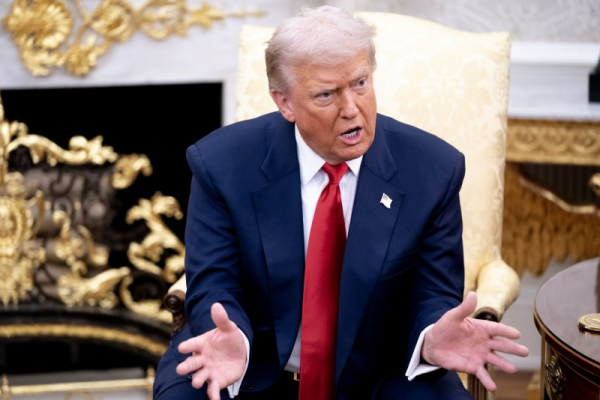

U.S. President Donald Trump has officially removed of a 40% tariff on certain agricultural imports from Brazil, including coffee, tea and tropical fruits. Photo by Nathan Howard/UPI | License Photo
U.S. President Donald Trump has officially removed of a 40% tariff on certain agricultural imports from Brazil. The list released by the White House includes coffee, tea, tropical fruits and fruit juices, cocoa and spices, bananas, oranges, tomatoes and beef.
The decision was made formal Thursday in a new executive order that amends the scope of the original decree (Order 14323) and exempts several agricultural imports from the additional tariff, with retroactive effect from Nov. 13, 2025.
The change comes after “initial progress” in negotiations between the U.S. president and his Brazilian counterpart, Luiz Inácio Lula da Silva, as well as new recommendations from officials monitoring the bilateral relationship, according to the official text released by the White House.
In April, Trump imposed a system of “reciprocal” tariffs that set a minimum of 10% on most exports bound for the United States, arguing it would reduce the trade deficit and strengthen domestic industry.
In early August, Washington raised tariffs again on a wide range of Brazilian products as the U.S. president increased pressure on Brazil over the attempted-coup case facing his political ally, former President Jair Bolsonaro.
The recent amendment orders an update to Annex I of the July decree, meaning the excluded agricultural products may enter without the additional tariff and that importers will be entitled to refunds of duties already paid, in line with Customs and Border Protection procedures.
Officials from the Departments of State, Commerce and Homeland Security, along with other agencies, must coordinate the technical implementation of the changes and continue assessing whether further measures are needed as talks with Brazil progress.
Brazilian President Luiz Inácio Lula da Silva said he was satisfied with the measure announced by the U.S. government. He added that Brazil is managing the tariff pressure well and has earned the respect of the United States, Agência Brasil reported.
“When the president of the United States decided to impose the extraordinary tax, panic spread and everyone got nervous. And I don’t usually make decisions with a 102-degree fever. I wait for it to go down. If you make decisions with a fever, you make mistakes,” Lula said in a speech at the opening of the São Paulo International Motor Show.
Although lifting the tariff gives Brazilian exports some relief, the White House has kept in place the national emergency declared in July and left open the possibility of future adjustments. The order notes that the measure will be applied within the existing legal framework and does not create new rights for individuals or alter the authorities of other federal agencies.